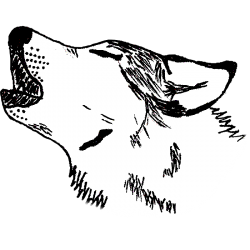This is a Learning in Progress post. Contents are brief thoughts based on few sources, and have not been checked for accuracy or usefulness.
These notes are based on a section of Equality by Darrin M. McMahon. I haven’t finished reading it, and a bug deleted most of my notes from the first ~200 pages, so it is even less complete than it might otherwise be.
People are different, and this makes them inherently unequal. This has been used to justify bigotry on arbitrary differences throughout history, but declaring equality of all doesn’t make people equal either. Everyone has needs and capabilities, and the only path to equality is to have all people use their capabilities collectively to fulfill their collective needs.
Stalinism took “From each according to their ability, to each according to their need.” and replaced the word “need” with “work”. By including this seed of meritocracy, anyone injured, disabled, or elderly is excluded from equality. (I think every person has a phase where they see meritocracy as ideal. Fortunately, most people grow out of this phase.)
Nazis promoted equality of a few at the expense of everyone else. (How equality has been used throughout history changes. It is important to recognize that it means different things to different people.) Fascism creates a meritocracy exclusive to one class, relying on the existence of outsiders (who must be murdered1). In this way, fascism must shrink the accepted class to have more outsiders, and eats itself.
We claim all nations are equal, while propping up some, sabotaging others, and we can all see that nations are not equal. WWII’s devastation increased equality (see “four horseman of leveling” in Quotes). Post-WWII, economists claimed that industrialization forms a natural progression of brief extreme inequality that quickly brings in equality. (This is an obvious lie.) At the same time, economists claimed that it was better to make a nation wealthy than to fix its inequality, and that commerce is a leveling force. “When a rich man sells to the poor, they become equal.” cannot be true, and yet it was the predominant claim.
Quotes
- “self-love is the great barrier to full human equality” I see in many people, especially myself, a critical lack of self-love, so this stood out to me as worth investigating further. It may not be true, or it may be more true than I am capable of recognizing right now.
- “Christianity is Communism” If you research when and where Christianity was formed, the people were living under a form of communism.2 The ideals of Christianity are communist ideals, but have been changed and replaced by centuries of adaptation and interpretation.
- “iron law of oligarchy” In every government, an elite few control all. There are many systems to stop this, but they have all failed so far.
- “four horseman of leveling” – war, revolution, state failure, disease. These are all common things that have caused increases in equality by hurting everyone.
Questions
- Does communism only work at small scales? It is implied to have only worked when implemented by communities instead of countries.
- Does Marxism rely on individualism? The more I learn, the more I see that individualism is the biggest threat to progress. (Ever heard “divide and conquer”? Individualism IS self-division – a destruction of community. It makes us weak.)
- What makes immigration “good”?3 From my education, I “know” that immigration has always had benefits, but what are those benefits? Why do we call them beneficial? As far as I know, the benefit has always been cheap labor (exploitation of immigrants). I want to challenge my education, and learn more about the complexities of immigration. (There is never a valid reason to stop immigration.)
- Should we not want greatness? What IS greatness? Nietzsche argued for a constant personal struggle to achieve greatness, and against many institutions that improve equality. If seeking greatness requires sacrificing others, should we ever want it?
- What was good/bad about the “New Deals”? They compensated for a destroyed economy, and produced infrastructure still used today, but what were the exact short-term and long-term effects?
Further Reading
- Capital: A Critique of Political Economy by Karl Marx
Footnotes
- Fascism relies on exploitation of the unaccepted classes, which often literally involves mass murder, but also makes the unaccepted people leave. This is why fascists inevitably shrink their accepted class.
- Romans were the capitalists of their day, exploiting the people that became the first Christians. Communism is a broad and complex subject. In this context, communism is being used unrelated to the way it is used as a classification for modern countries.
- A partner reminds me that diversity is an inherent good, and that immigration increases diversity. (At minimum, diversity brings new ideas and perspectives into focus, and increases resiliency.)
(It’s kind of difficult to keep motivation when hard work is unceremoniously destroyed by a glitch..)
